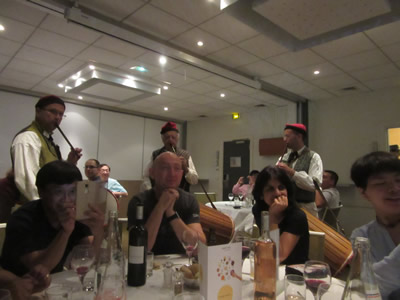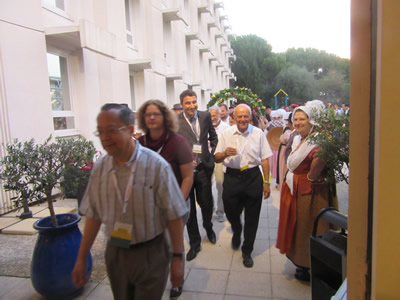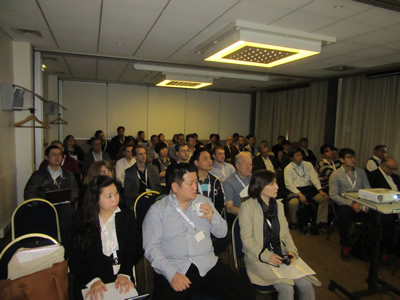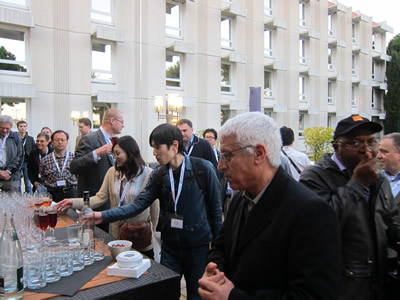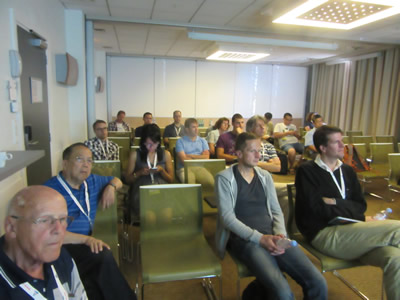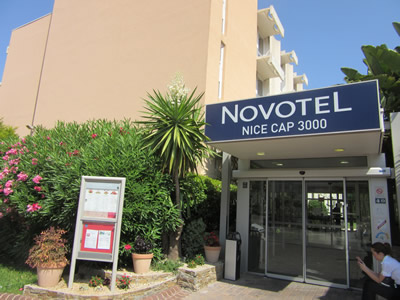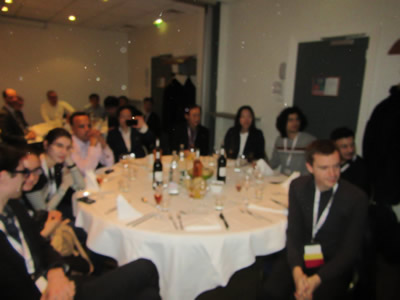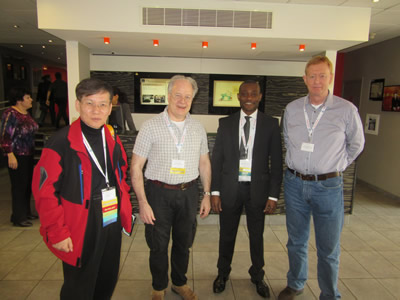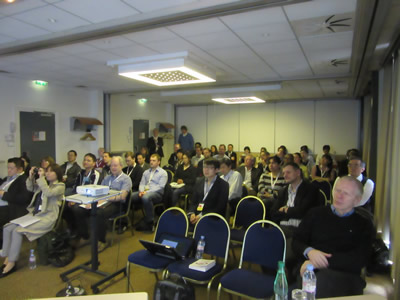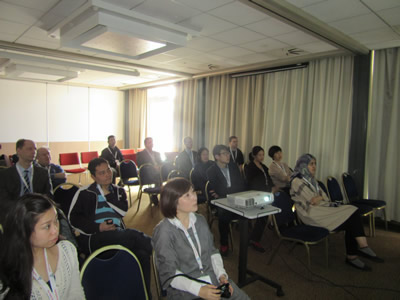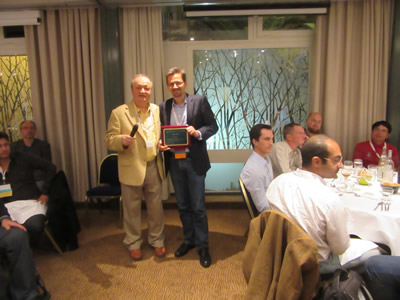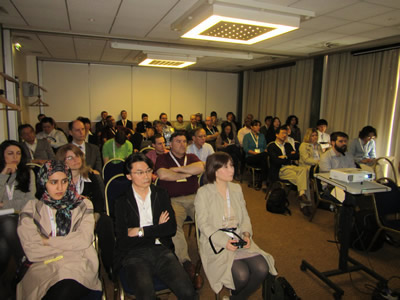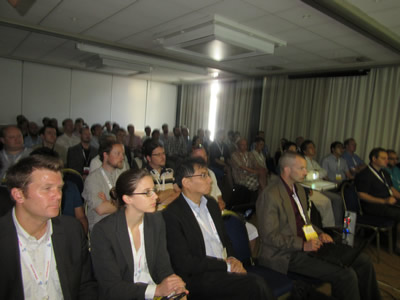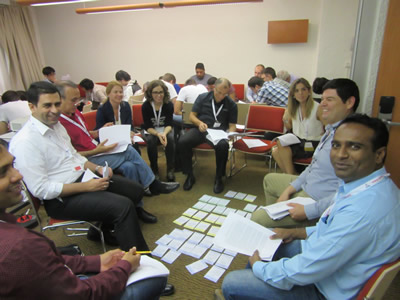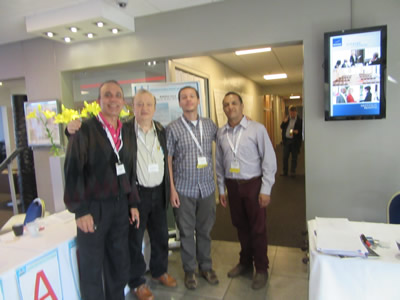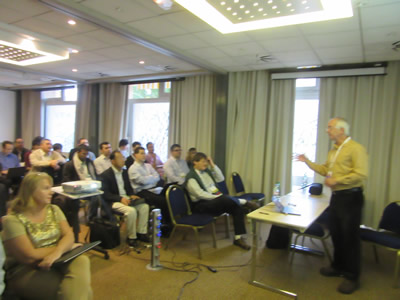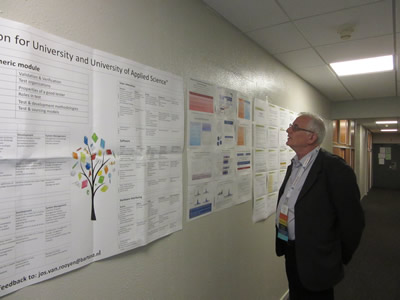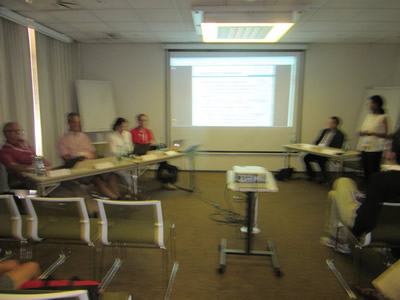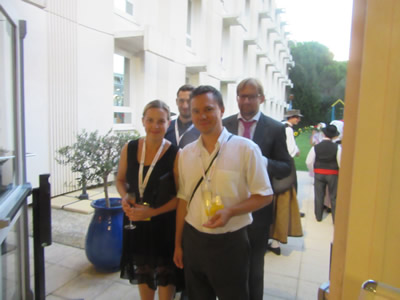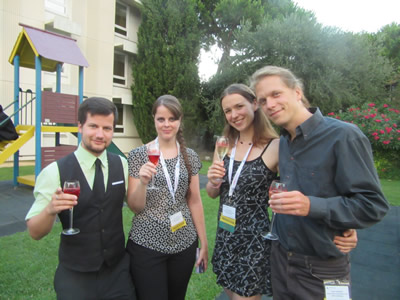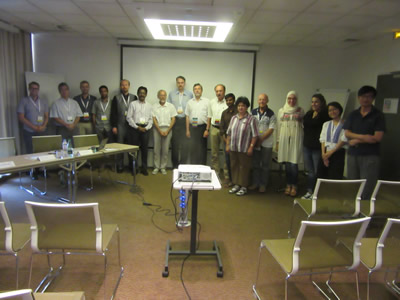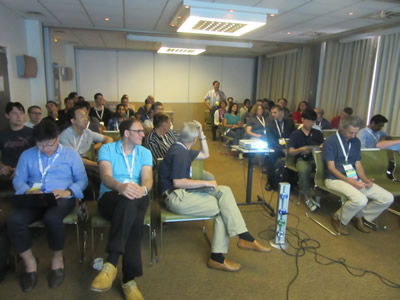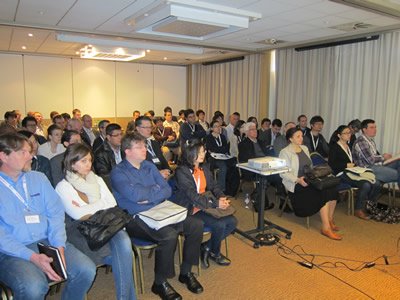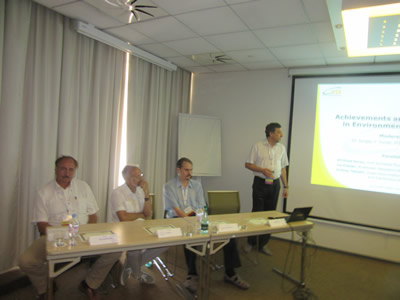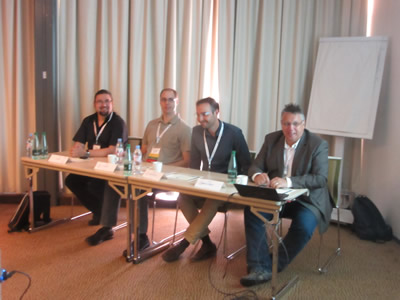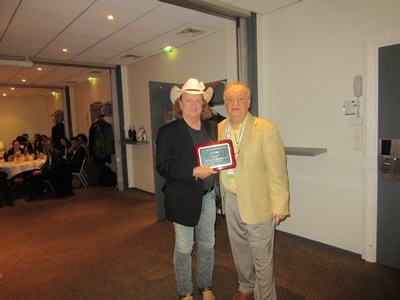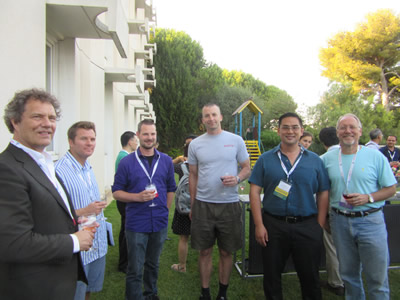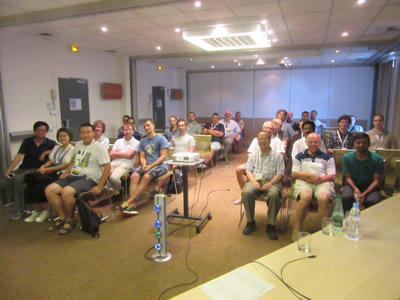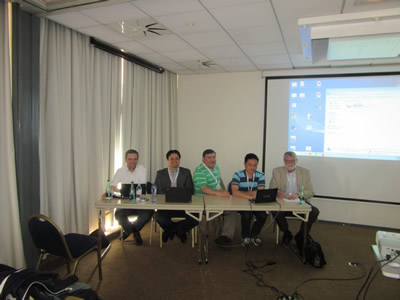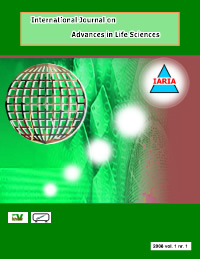eLmL 2025 - The Seventeenth International Conference on Mobile, Hybrid, and On-line Learning
May 18, 2025 - May 22, 2025
eLmL 2025
Onsite and Online Options: In order to accommodate various situations, we are offering the option for either physical presence or virtual participation (pdf slides or pre-recorded videos).
ISSN: 2308-4367
ISBN: 978-1-68558-271-5
eLmL 2025 is colocated with the following events as part of DigitalWorld 2025 Congress:
- ICDS 2025, The Nineteenth International Conference on Digital Society
- ACHI 2025, The Eighteenth International Conference on Advances in Computer-Human Interactions
- GEOProcessing 2025, The Seventeenth International Conference on Advanced Geographic Information Systems, Applications, and Services
- eTELEMED 2025, The Seventeenth International Conference on eHealth, Telemedicine, and Social Medicine
- eLmL 2025, The Seventeenth International Conference on Mobile, Hybrid, and On-line Learning
- eKNOW 2025, The Seventeenth International Conference on Information, Process, and Knowledge Management
- ALLSENSORS 2025, The Tenth International Conference on Advances in Sensors, Actuators, Metering and Sensing
- SMART ACCESSIBILITY 2025, The Tenth International Conference on Universal Accessibility in the Internet of Things and Smart Environments
eLmL 2025 Steering Committee
|
 |
Maiga Chang
Athabasca University
Canada
|
|
 |
Daniel Amo Filvà
La Salle - Universitat Ramon Llull
Spain
|
|
 |
Alexander Mikroyannidis
The Open University
United Kingdom
|
|
 |
Rodica Neamtu
Worcester Polytechnic Institute
USA
|
|
 |
Maiga Chang
Athabasca University
Canada
|
|
 |
Daniel Amo Filvà
La Salle - Universitat Ramon Llull
Spain
|
|
 |
Alexander Mikroyannidis
The Open University
United Kingdom
|
|
 |
Rodica Neamtu
Worcester Polytechnic Institute
USA
|
eLmL 2025 conference tracks:
Learning Analytics and AI-tools Impact
AI in personalized learning, experiences and outcomes; Predictive analytics in education, student performance and learning needs; Ethical considerations in learning analytics - privacy, consent, and ethical use of student data; AI-driven curricula - AI-based tools for designing and updating educational content; Behavioral analytics - student engagement and participation; AI and Adaptive Learning Systems: The role of AI in creating adaptive learning environments for differentiated instruction. Learning analytics for teacher development, training and professional growth; AI on educational equity; Data-driven decision making in education, strategic planning, and administration; Trends in AI and learning analytics.
Trends in eLmL 3.0&4.0 systems
Inference learning; Active learning; Learning through pictures; Collaborative active learning and augmented reality; Project-based learning; Inline learning analytics; Blended learning; the Flipped classroom; Inquiry-based learning; Lecture capture systems; Learning from serious games; Pedagogical design and learning interaction; Interactive multimedia-based systems; 3D interactive applications; Meta-learning (mining, recognition, patterns, etc.); Didactic proof assistants; Annotated learning videos; Multimodal learning environments; Co-learning methodologies; Learning Objects; Digital badge systems; eTextbook; eSchool Bag; Online music education
Adaptive eLearning
Peer-assessment in learning (eLmL) systems; Self-assessment in eLmL; Reflective thinking; Self-regulated learning; Attention training mechanisms; Context-aware collaborative learning; Self-evaluation learning systems; Adaptive tutoring systems; Emotion-driven learning; Assessment of self-learning systems; Adaptive learning systems for adults; Adaptive learning systems for children; Adaptive blended learning systems; Learners feedback in adaptive learning systems; Learners reflection in adaptive systems; Learning with mobile recommender systems; Learning interaction patterns; Perceived learning quality metrics; Personalization of e-Learning courses; Assessing pedagogical satisfaction
(Augmented) Virtual reality and social games
Virtual and augmented learning environments; Spatial augmented reality; Serious games; Entrepreneurship social games; Collaborative visualization; Training via virtual reality-based systems (spatial-orientation, dental anesthesia, etc.); Virtual reality-based therapies (phobias, fear of flying, etc.); Expression recognition; Serious games applications (rehabilitation, surgical education, warfare, etc.)
Learning-oriented devices and networks
Mobility (IEEE 802.11 standards, engineering, smart devices); Mobile communications; Hardware/software systems for mobile communications; Evolution from 3G to 4G and beyond; Mobile networking; Wireless networking; Wireless access (WPAN, WLAN, WLL); Mobile IP, VoIP, IPTV, etc.; Satellite technologies for e-learning; Next generation of mobile technology; User-oriented device interfaces; Adaptable student/device interaction; Wearable devices
Learning-oriented technologies
Architecture of learning technology systems; Informal learning; Formal/informal exploratory and serendipitous learning; Advanced uses of multimedia and hypermedia; Integrated learning and educational environments; Remote and wireless teaching technologies; Anytime/anywhere e-learning and wearable network devices; Adaptive e-learning and intelligent applications/tools; Agents technology; Intelligent tutoring systems; Training e-learning teachers; Practical uses of authoring tools; Application of metadata and virtual reality
Tools and platforms
eLmL learning tools (basic infrastructure, content management, cross-media publishing, social & cooperative learning, lecture recording); Tools and architectures for mobile/ubiquitous e-learning; SOA for e-learning; Web 2.0 and social computing for learning; Ontologies and semantic Web standards for e-learning; Adaptive and personalized educational hypermedia; Peer-to-Peer learning applications; Social software for collaborative learning; Socially intelligent agents; e-Learning platforms, portals and virtual learning environments; Embedded systems education; Wearable computers and education; Multimedia environment for teaching; Web-based learning, including Wikis and Blogs; Learning content management systems
On-line learning
Content engineering (authoring, standards, metadata, process models); Internet based systems; Navigational aspects for on-line learning; Virtual spaces for learning communities; Internet supported ubiquitous learning; Mobile eLearning applications; Pervasive eLearning scenarios; Multi-agent technology applications in Web-based education; Semantic social networks; Community discovering in social learning systems; Social structure exploitation in e-learning
Mobile learning, teaching, and training
Advanced teaching and learning technologies for mobile learners; Advanced software and hardware systems for mobile learning and teaching; Virtual mobile learning environments; Adaptive learning strategies Advanced curriculum and courseware for mobile learning and training; Security issues of mobile learning; Learning management systems for mobile learning; Ontologies and pedagogical models; Testing, assessment and quality issues of mobile learning; Faculty and professional development on mobile teaching and learning Infrastructure, administrative and organizational issue of mobile learning; Applications of mobile technology in open, distance, and corporate education; National and international projects, strategies, and policies on mobile learning
Hybrid learning
Didactics of eLmL (informal learning, ambient and augmented learning, cooperative learning); Teacher-centric and student-centric approaches; Self-learning integrated methodology; Learner autonomy; Interactive hybrid learning; Assessment strategy for hybrid learning; Collaborative learning/groupware; Content management for hybrid learning; Digital libraries for hybrid learning; Effective content development experiences in hybrid; earning; Improved flexibility of learning process; Institutional policies; Instructional design issues; Organizational framework for hybrid learning; Outcome based teaching and learning; Pedagogical issues
Challenging technical aspects
Tutoring eLearning applications and services; Teaching eLearning methodologies and technologies; National and international projects on e-learning; e-Learning industry and universities programs; Application of instructional design theories; Reflection in learning software and hardware; Social impact metrics on distance learning; Methodologies and processes for education; Curriculum projects and experiences; Educating the educators; Simulated communities; Online mentoring; Cultural, social, and gender issues; Personalization; Corporate training
eLearning materials
Cognitive aspects of interactive multimedia learning materials; Challenges of user-activated learning feature (text, still or moving image, sound and music); Empirical studies on usage (perception, interaction and reading patterns); Learning outcome of multimedia materials; Comparative studies of effect of media with variants of similar content; Aesthetics of learning materials; Case-studies on the visuals materials; Studies on design principles and practices; Analyses of the visual aspects of commercial products; Analysis of preferences of users and educators
Assessing eLmL
Organization of eLmL (quality management, learning networks); Cost models for eLearning; E-market place for higher education; Evaluation of eLearning; Social benefits of eLearning; e-Learning effectiveness and outcomes; Global trends in eLearning
Education in developing regions
National/international strategies; Evaluation of learning technology systems; Emerging and best practices; Managing quality in eLearning; Standards related activities
Deadlines:
Submission | Feb 21, 2025 |
Notification | Mar 24, 2025 |
Registration | Apr 05, 2025 |
Camera ready | Apr 13, 2025 |
Deadlines differ for special tracks. Please consult the conference home page for special tracks Call for Papers (if any).


